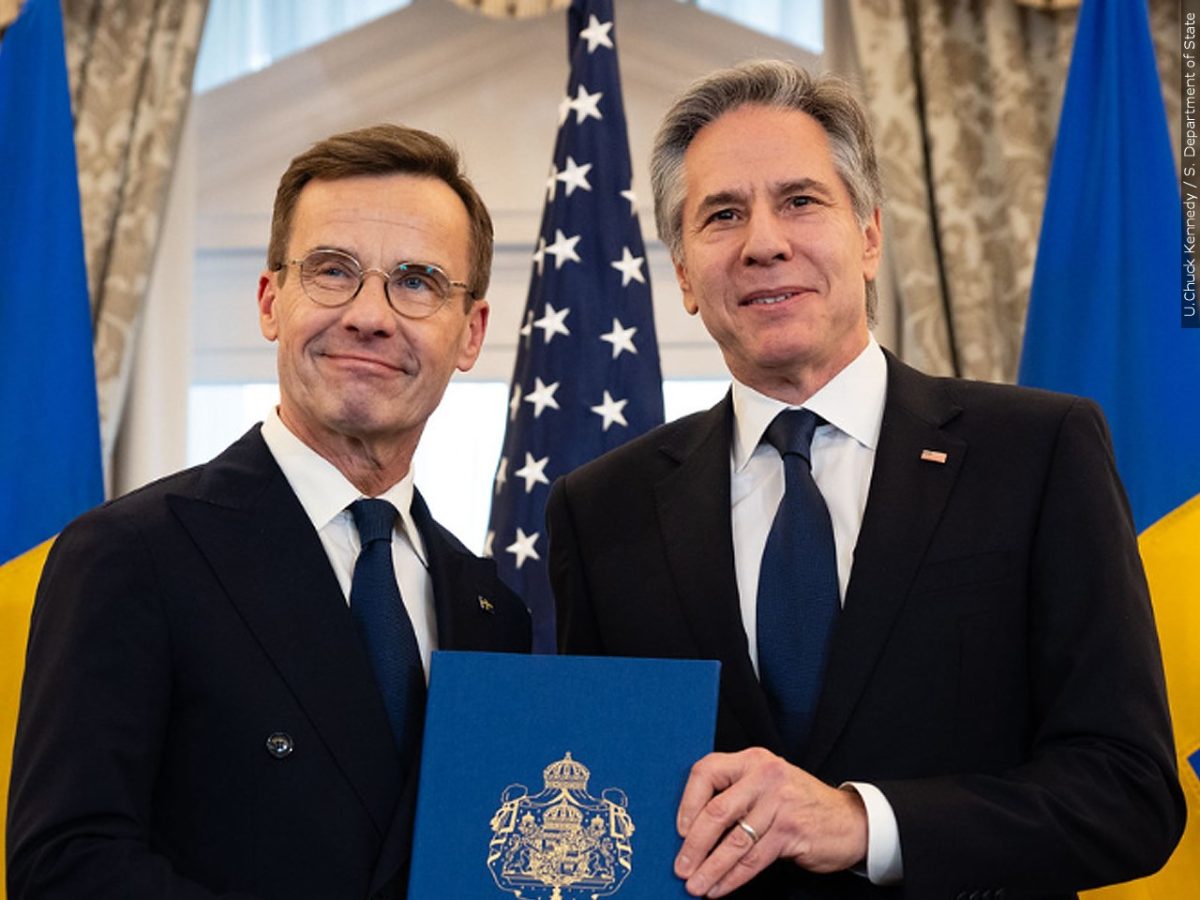Despite many obstacles and obstructions, Sweden recently became the 32nd member of the North Atlantic Treaty Organization, or NATO. Sweden’s admission comes as a result of numerous foreign conflicts, particularly due to Russia’s invasion of Ukraine.
Geopolitically, the Russian invasion of Ukraine was the catalyst for the increasing need for European safety. Joining NATO was one of the largest insurers of this safety, and so it became the top priority for a number of nations neighboring Russia. This necessity eventually overwhelmed Sweden’s famous track record for staying out of international conflict.
“What is most remarkable and surprising about Sweden’s wish to join NATO is that it ends Sweden’s centuries-old neutrality,” said Dr. Steven Elliot-Gower, an associate professor of political science at GC. “This speaks to the enormity of the threat that Russia poses to Swedish and Finnish national security.”
Furthermore, Sweden’s decision goes beyond national influences. By increasing the size and prowess of NATO, Ukraine gains a competitive advantage against Russian aggression. This is because NATO has been historically pro-democratic, opting to protect democratic governments — such as Ukraine — in the face of the growing number of authoritarian nations.
“Ukraine has always supported Sweden in its pursuit of NATO membership, and I thank Sweden for its support of our country, said Volodymyr Zelenskyy, the president of Ukraine. “There will be a day when Sweden will be able to congratulate Ukraine on joining the alliance as well. Together, we are always stronger.”
This effect becomes amplified through the admission of Finland, a nation with a similarly isolationist foreign policy as Sweden, into NATO in 2023. Likewise, Finland joined due to the Russian-Ukraine conflict, as it posed a threat to regional democracy.
With the two nations admitted, NATO’s European security strengthens alongside cooperation and economic stability efforts.
“Like Finland, Sweden shares our values and principles, and they share our unwavering commitment to international security in the face of Russia’s threats and their barbaric war in Ukraine,” said Rishi Sunak the prime minister of the United Kingdom. “Sweden and Finland’s membership will make NATO stronger and the whole Euro-Atlantic more secure.”
However, even as the admissions of Finland and Sweden reinforce NATO’s European presence, some are skeptical that it will have a practical effect on their national interests.
Landon White, a sophomore physics major, shares similar beliefs: that while NATO has been notably strengthened, it is doubtful that Russia will expand past Ukrainian borders.
“Sweden’s admission is a pretty big deterrent to Russia if they were to try to attack Sweden and other NATO nations,” White said. “However, I would not say that I am fearful of Russia’s aggression because it seems like they are just centered and contained on Ukraine.”
Nevertheless, the reasoning behind Sweden’s admission into NATO is multifaceted and encompasses more than the Russian-Ukrainian invasion alone; the Israel-Hamas conflict is another influential example of recent international conflict.
Although militarily concentrated, the Israel-Hamas conflict has resulted in tens of thousands of casualties with millions of Gazans displaced and in need of basic necessities. As a result, the desire for international security becomes bolstered alongside the existing needs, a process that Sweden’s decision straightforwardly exemplifies.
Intrinsically, these instances in which nations grow their need for international safety represent Sweden’s decision to disregard traditional isolation. As the world changes, so does Sweden’s holistic approach to foreign policy: that the fight to keep democracy and the need to preserve democracy are growing proportionally.












